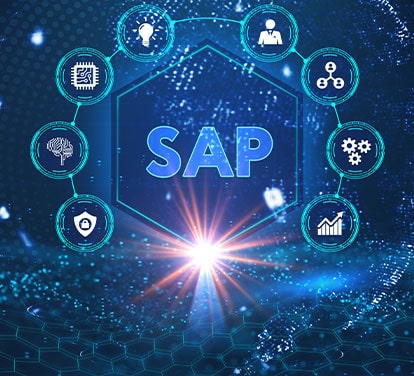W. Edwards Deming once very famously said, “In God we trust. All others must bring data.”
And I couldn’t agree more. Data has become a single source of truth, and it is estimated that Data-driven organizations are 23 times more likely to acquire customers. However, considering that a whopping 2.5 quintillion bytes of data are created each day, and that pace is only accelerating, the question most of us ask is, is all data good? How do we know which data to consider and which to ignore? It has often been cited that a lack of trust in data on the part of corporate executives and business managers is a common cause of impediment to using business intelligence (BI).

Master Data Management and how does it help organizations
By Shailabh Haldule
Master Data Management Process and Tools
That is where Master Data Management tools come into play. Master data management (MDM) is an integral process by which businesses manage, centralize, organize, categorize, localize, and enrich master data according to the business-specific rules applicable to any organization’s sales, marketing, and operational strategies. The problem of incomplete or inaccurate data is omnipresent. MDM tools set rules that implement consistency and identify irregular data collected from multiple sources, such as sales leads, payment methods, customer accounts, surveys, suppliers, and marketing sources.
Master Data Management thus plays a key role in verifying purchase decisions, compliance standards, and supervision.
Supplier Master Data Management
For the uninitiated, master data is any business-critical data about parties, places, and things. Master data can be about a product, customer, supplier, location, asset information, and any information sources that drive a business. Though Master data is a single source of common data, the challenge is that many distinct data types are stored in systems such as ERP, CRM, eCommerce, HRIS, and more. They are often duplicated across the business as these systems largely remain disconnected and siloed with little interaction and standard definition.
An end goal of an efficient Master Data Management tool is to provide businesses with one single source of truth about any information, in the process eliminating duplicate data or erroneous data caused by such data silos. It supports business initiatives by identifying, linking, and filing information across products, customers, locations, employees, suppliers, and digital assets. This will enable a business to:
- Focus on product, service, and business efforts on activities that are found to increase sales.
- Deliver a highly personal service and engagement experience to customers so that they remain loyal.
- De-prioritize unprofitable activities that drain employees’ time and resources so that they can focus on important tasks.
Importance of Master Data Management
One significant challenge that MDM Tools strive to solve is to help businesses sort through the data they amass daily in various Master Data systems. Though Data is supposed to be a source of truth, ironically enough, it has become the devil that is engulfing most business functions across industries. By implementing Master Data Management tools, businesses can overcome the ‘garbage-in, garbage-out demon of information collection and processing. It thus helps draw better intelligence from the resultant accurate and unified data to augment sales, improve processes, and enhance product development.
Here is an overview of the importance of Master Data Management Systems:
- Creating foolproof customer personas: Businesses with accurate and authentic customer data related to their buying patterns, choices, and preferences can better cross-sell and up-sell to them. Creating customer personas through MDM helps businesses predict and pitch products and services most likely to match customer needs.
- Enhanced Visibility of Business Expenditure: MDM allows businesses to closely analyze and classify data into relevant categories that help to clearly illustrate ways to improve compliance and efficiency, decrease the cost of procurement, and identify value add.
- Assess Supplier Risks: MDM can help draw insights from vendors’ data across the business supply chain to identify suppliers that pose a critical threat to operations. Such risk assessment is mostly done on historical data on supplier performance, financial health, policies, and processes. Doing so helps optimize a company’s purchasing process and identifies risks in time to prevent supply downtime.
- Standardization of Business Processes: Since MDM enables businesses to unify business process systems, this leads to identifying various processes and streamlining sub-processes that reuse common information available in various systems. Businesses can set standard procedures that encourage transparency and reduce variables in all business operations by identifying duplicate processes to store the same data.
In addition to the above, Master Data Management tools offer various other advantages. Several tools are widely available to meet the rising demand for Master Data Management. The global master data management (MDM) market size is expected to grow from USD 11.3 billion in 2020 to USD 27.9 billion by 2025 at a Compound Annual Growth Rate (CAGR) of 19.8%.
Boomi Master Data Hub
With various players in the market, one platform that stands out is the Boomi Master Data Hub. Boomi Master Data Hub is a cloud-native master data management (MDM) tool that sits at the center of the various data silos within a business. Including existing MDM solutions to provide an easy-to-implement, scalable, flexible, and secure Master Data Management hub as a service. What sets it apart from other solutions in the market is that Boomi Master Data Hub does not store and manage all data of interest in the organization. Operational systems continue to be the systems of record. Boomi Master Data Hub only synchronizes this master data from across operational systems. The data remains in the cloud, on-premises, or both, within operational databases.
How can Jade Global help?
Jade Global helped a healthcare-focused marketing communications firm based in San Francisco Integrate Workday®, NetSuite, and OpenAir with Boomi MDM. We designed and implemented a solution to automate all manual processes using Boomi MDM. This Master Data Management solution could transform and load employee and cost data from Workday to NetSuite and OpenAir. We configured MDM to restrict all incorrect data from flowing to NetSuite and OpenAir by setting up business rules and governance. To know more about this solution, read here.
This is just one instance of our MDM implementation capabilities. You can learn more about our Boomi MDM offerings here.
It would help to state that Jade Global is a Boomi Certified Platinum Partner specialized in enterprise-grade solutions for all integration needs. We work closely with Boomi to deliver complex yet cost-effective integration solutions to help customers accelerate business agility and achieve rapid digital transformation. Our Boomi MDH Implementation Specialists have been helping small to large organizations overcome critical Master Data issues with the faster, simple, and cost-effective implementation of the Boomi MDH platform.













